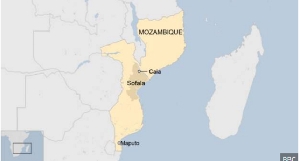Business News of Saturday, 4 August 2012
Source: Daily Guide
Dollar Scarcity Hits Tamale
The rush for US dollars by residents in the Tamale Metropolis following the continuous depreciation of the cedi against other major currencies has resulted in the shortage of the currency in the region.
The Ghana Cedi has in the past months lost more than 20 per cent in value against the US dollar owing to high corporate demand for the latter.
As a result of the development, one can only buy dollars at unapproved places at throat-cutting rates.
As at the close of business last Friday, the dollar was being exchanged for between GH¢2.20 and GH¢2.50 on the black market, and people could not obtain more than $300.
Most local, national and international banks operating in the Northern region were unwilling to trade their dollars for Ghana Cedis claiming they had no cash.
The Trades Union Congress (TUC) believes that the halt in the free fall of the cedi would require a fundamental shift in policy and attitude, particularly among the monetary authorities.
The Bank of Ghana (BoG) explained that the situation was transitory as a result of the increasing demand by businesses for the dollar to pay for goods and services procured.
But the Ghana Union of Traders Association (GUTA) has attributed the sharp depreciation of the cedi against major currencies to illegal activities by foreigners in the retail sector.
According to GUTA, the high demand for the dollar to meet huge imports by non-Ghanaians involved in the retail trade results in scarcity, pushing the exchange rate high.
In 2008, a trader paid GH¢1.00 for $1.00, but in April 2012, the same trader has to pay between GH¢1.74 and GH¢2 for $1.00 as they embarked on a trip to Dubai.
Year-on-year decline in the value of the Ghana cedi against the US dollar registered 74 per cent over a three-year period.
Between 2010 and 2011, the cedi depreciated by 18.5 per cent against the US dollar.










